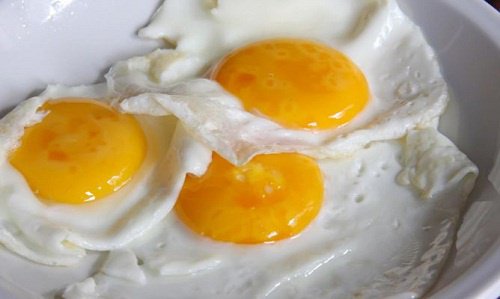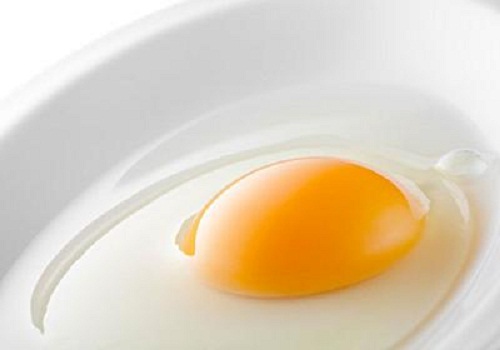Is Eating Eggs Good or Bad for You?

Some people support eating eggs and others are against it, whether its every day or occasionally. Some people say that them has many benefits for the body and others say they’re not good for your health. So, is eating eggs good or bad for you? Find out the answer in this article.
Nutritional facts of eggs
Eggs are full of nutrients and easy to find. They’re also in a lot of recipes. But a lot of people say that they’re not good for your health because they raises cholesterol levels and contain fat, which can cause heart disease.
Eggs contain proteins, fats (monounsaturated as well as polyunsaturated), vitamins, and cholesterol. It’s worth remembering that cholesterol is something you need to keep in check.

It’s easy to test whether or not eating eggs frequently is healthy in the long-run. There are studies that show that they are all positive. But there are also others that say the opposite. There is no concrete proof for the theory that eggs are bad for your health.
Other factors play a apart and eggs aren’t the only “culprit.” Other things that can impact your health include stress, tobacco, a sedentary lifestyle, alcohol, fats, or processed foods.
It also has a lot to do with the way you eat eggs. Eating a fried egg everyday is not the same as eating a hard boiled or semi raw egg. Doctors say that you shouldn’t eat more than four or five a week, based on your age, family history, and health.
Eggs: fact and fiction
Eating eggs increases cholesterol levels: false
As we said above, eggs can’t raise your cholesterol on their own. One thing that can do that are animal fats, like meat and cold cuts.

You should avoid eating raw eggs: true
The risk of poisoning by bacteria (salmonella) is reduced and can be completely eliminated by cooking eggs. You should cook them at over 60° C (140°F)
You need to wash them before putting them in the fridge: false
The egg shell protects everything inside. Washing them actually makes it easier for micro-organisms to make their way into its wrinkled texture. Still, we suggest washing them off with just water before you cook them.
Brown eggs are better than white ones: false
An egg’s nutritional properties have nothing to do with its shell color. The color changes based on the type kind of chicken, which is why there are white and brown ones. You can eat either, there’s no difference.
Children and pregnant women shouldn’t eat eggs: false
It’s very false: eggs have a lot of proteins and vitamins that make them great for the development of young children or a fetus. They’re especially good for the nervous system and the elimination of food allergies, which show up in the first years of life. Just remember that newborn babies can’t eat them until they’re 8 months old.
You might like:
Try These 5 Egg Masks to Beautify Your Skin

Adults shouldn’t eat eggs: False
This is another group that should eat three eggs a week to boost muscle mass or prevent themselves from losing it. Eggs also have a lot of antioxidants, which help slow down the onset of degenerative diseases like Alzheimer’s or artherosclerosis.
Eggs are high in calories: false
An egg has only 80 calories and 6 grams of protein if you eat it cooked (not fried). It also has essential nutrients like zinc and iron. Its essential amino acids are also very high quality.
Chickens are manipulated to produce more eggs: true
You’ll need to make an exception because this doesn’t happen 100% of the time. The industries that sell massive amounts of eggs use unhealthy practices for the chickens. One of them involves manipulating light so that the chickens’ ovulation is accelerated. As a result, they produce more eggs.
To avoid this, buy eggs at small farms or family owned stores, where you can be more confident that the production doesn’t harm the chicken or the quality of the egg.
Read more:
Add These Ingredients to Your Scrambled Eggs and Surprise Everyone

Yolk vs. egg white: which is better?
Many people wonder if it’s better to eat only the yolk or only the egg white. Or both. Well, from a nutritional point of view, it’s the yolk. That’s where most of an egg’s nutrients are.The yolk is the ovule of the egg, where the chicken is formed if it has been inseminated and incubated. That’s why this part has so many vitamins and proteins.
So, what about the white? We didn’t say that only the yolk is good, just that it has more nutrients. Egg whites have a lot of amino acids, which will help you develop muscles, to give one example. They don’t have much fat, so it’s good for people who want to lose weight. They don’t have much cholesterol, you can eat whites if you have high triglycerides.
All cited sources were thoroughly reviewed by our team to ensure their quality, reliability, currency, and validity. The bibliography of this article was considered reliable and of academic or scientific accuracy.
- Gray, J., & Griffin, B. (2009). Eggs and dietary cholesterol – dispelling the myth. Nutrition Bulletin. https://doi.org/10.1111/j.1467-3010.2008.01735.x
- Miranda, J. M., Anton, X., Redondo-Valbuena, C., Roca-Saavedra, P., Rodriguez, J. A., Lamas, A., … Cepeda, A. (2015). Egg and egg-derived foods: Effects on human health and use as functional foods. Nutrients. https://doi.org/10.3390/nu7010706
This text is provided for informational purposes only and does not replace consultation with a professional. If in doubt, consult your specialist.








